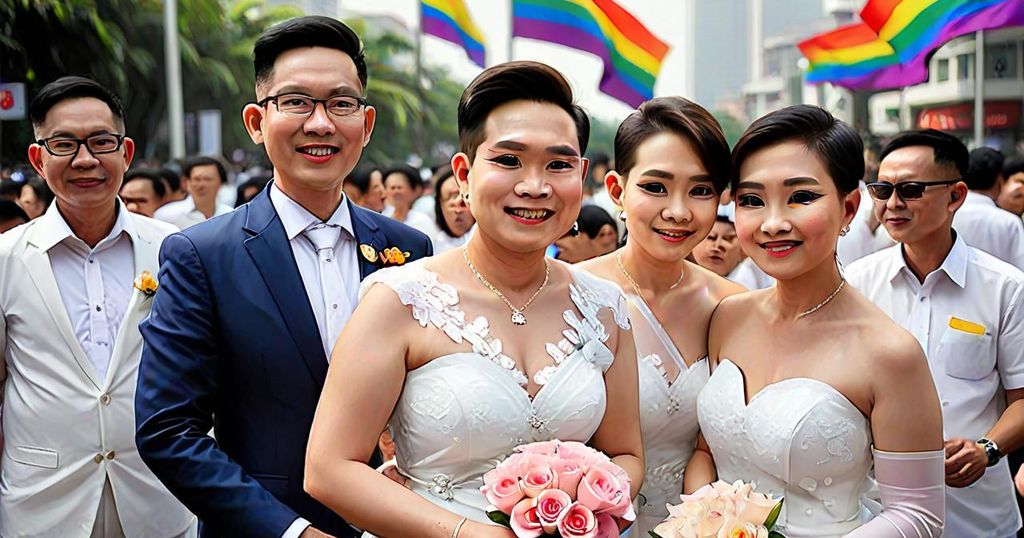Thailand is poised to create history as the initial country in Southeast Asia to legalize same-sex marriage. This momentous determination follows the affirmative vote by lawmakers on a marriage equality bill, which has received approval from the country’s senate and is anticipated to be sanctioned by the king to establish as law.
If ratified, Thailand will join Taiwan and Nepal as the exclusive countries in Asia to legally acknowledge same-sex marriages. The bill not only permits same-sex couples to marry, but also bestows them with equal rights to adopt children and inherit property, signifying a profound shift in the legal framework of the country.
As noted by Chanatip Tatiyakaroonwong, Thailand researcher for Amnesty International, the prominence of LGBT issues has risen in recent years, particularly amidst broader political demonstrations. This escalated awareness has contributed to elevating the visibility of these issues across a broader segment of society, and it is expected that this advancement in Thailand will transmit a positive message throughout the region.
While Taiwan became the first location in Asia to validate gay marriage in 2019 and Nepal commenced registering same-sex marriages last year, advancements in other regions of the continent have been sluggish. India’s Supreme Court decriminalized gay sex in 2018 but refrained from extending marriage rights to the LGBTQ community, underscoring that regulating marriage fell within the jurisdiction of lawmakers. Similarly, Singapore repealed a law criminalizing sex between men but retained the conventional definition of marriage as exclusively between a man and a woman.
In Indonesia, legislators passed a bill in 2022 that effectively prohibits homosexual sex by outlawing sex outside of marriage, as same-sex marriage is not acknowledged in the country.
A Pew Research Center survey disclosed that 60% of individuals surveyed in Thailand upheld the rights of gay people and lesbians to marry legally, a close percentage to the 63% of Americans who conveyed the same sentiment. Prime Minister Srettha Thavisin even displayed his support by participating in the Bangkok Pride Parade and brandishing a rainbow flag, signifying the strides made toward social equality in the country.
Mookdapa Yangyuenpradorn, from the human-rights advocacy group, Fortify Rights, depicted Thailand’s new marriage equality law as a victory for justice and human rights. She underscored the arduous journey to arrive at this historic juncture, which she believes warrants commemoration.
The enactment of the marriage equality bill in Thailand is not only a substantial landmark for the country, but also for the broader region of Southeast Asia. It indicates a step forward in the acknowledgment and safeguarding of the rights of the LGBTQ community, and conveys a compelling message of equality and inclusivity.

Leave a Reply